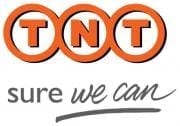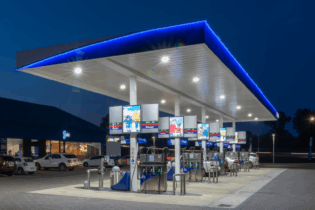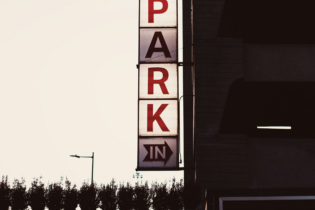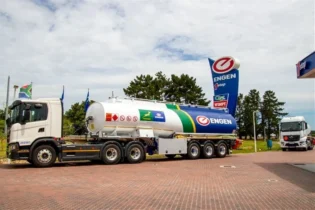By Tony Stone
Only once before in South Africa have the majority of people been so united against injustice. This time it is not against the evils of apartheid but against the hugely unpopular e-toll system. But, is the e-toll system corrupt and/or corruptible? And, does the government have a hidden agenda? Consider the case presented below. There is still time for the public and road freight industry to put pressure on government to rethink its e-toll strategy.
Lack of information
Business Unity South Africa (BUSA), amongst other organisations, expressed their regrets at the inability of the Department of Transport and SANRAL to communicate developments around the e-toll system effectively and transparently. In addition, there has been inadequate consultation between government and its social partners on the e-toll system. This has only increased the insecurity and unnecessary stress for Gauteng’s economic stakeholders – the general public, commerce and industry.
Bullying tactics
Reports of e-toll police, a peace force with special powers, road blocks and punitive action against motorists without e-tags enraged the Gauteng community. The Congress of South African Trade Unions (COSATU)’s general secretary, Zwelinzima Vavi, called for a general boycott of the e-toll system and urged motorists not to buy e-tags. The Department of Transport and South African Roads Agency Limited (SANRAL) reciprocated by overtly gazetting punitive new rates of up to six times higher for motorists who did not register e-toll accounts.
“This disregard of due process and the on-going bullying attitude to force compliance is a hallmark of the limited consultative process government has followed from the outset with respect to the Gauteng Freeway Improvement Project (GFIP), and more specifically, the urban tolling issue,” the Automobile Association said.
Abuse of authority
SASBO, the finance union, stated that it was alarmed at the infringement of rights such as the irrevocable authority given to SANRAL to obtain access to any information from any financial institution where the road user may have an account, and the blanket consent given to these institutions to disclose information to SANRAL.
As was predicted, this opened the system to abuse and the first case of fraud, as reported in the Beeld newspaper, involved Hannelie Kolbe who bought her e-tag on 12 April 2012 in Lynnwood and a day later had R2 460 deducted from her account. ETC, the Eurozone electronic tolling company contracted to collect the e-tolls, said they would investigate.
The e-tag agreement has since been modified, apparently to limit SANRAL’s authority. As a result, this now requires the 200 000 registered e-tag users on the old e-tag contract to sign a new contract. However, the new contract is still inordinately biased in favour of SANRAL.
Enriching external service providers
In a written reply by Transport Minister Sibusiso Ndebele to the Democratic Alliance following a question raised in the National Council of Provinces, it was established that more than 70% of the Gauteng toll income will be used over the next two years to collect toll fees. Ndebele said the Gauteng tolls should bring in R3.512 billion in 2013 and 2014. In that same period, it would cost R2.543 billion to collect the tolls and another R519.7 million in other operational costs.
Table 1: rojected annual income and costs of Gauteng’s e-toll system
| Year |
e-toll Income |
Operations Costs |
Maintenance Costs |
Profit/Loss |
| 2012 |
0 |
519 600 000 |
2 295 200 000 |
-2 814 800 000 |
| 2013 |
1 018 400 000 |
1 122 100 000 |
668 700 000 |
-772 400 000 |
| 2014 |
2 494 500 000 |
1 421 000 000 |
373 700 000 |
699 800 000 |
| Total |
R3 512 900 000 |
R3 062 700 000 |
R3 337 600 000 |
-R2 887 400 000
|
Source: National Treasury, Budget Review 87.2% of Income 95.0% of Income
Looking at the data supplied by the minister, there is a huge maintenance cost in 2012. This drops off to a figure 84% less by 2014. Normally, as a road ages so it needs more maintenance. The question, which remains unanswered, is: Why does a brand new road cost so much to maintain in its first year compared to the second and third years?
e-toll road construction defects
Problems have manifested along the N1 North and South between the 14
th Avenue and Rivonia Interchanges and along other sections of the GFIP. Here, along a 12 kilometre stretch, the road has “stripped” (lost chunks of asphalt) in places, has “bled” (with liquid asphalt migrating to the pavement surface) and “shoved or warped” (with corrugations forming due to incorrect asphalt mixes and/or base course defects). This should not have happened if quality control was in effect – and it should have been given the road construction costs involved.
To rub salt in the wound, the Competition Commission had by February 2011 established price collusion in the construction industry and offered involved companies reduced penalties if they came clean on their involvement in cartels. By November 2011 the Commission was negotiating with 20 construction firms that were involved in alleged collusions amounting to R29 billion, the purpose of which was for the construction companies to reach settlement agreements rather than face public hearings at the Competition Tribunal. A total of 65 bid-rigging cases involving more than 70 projects, including the Gautrain, soccer stadiums and road infrastructure (including GFIP) were probed. The 20 firms came forward and gave their full co-operation. The commission evaluated applications for leniency and concluded settlement fines with some of the companies. In all, the fines issued did not cripple the industry. Even so, this did little to appease a betrayed public.
Overcharging
The Opposition to Urban Tolling Alliance (OUTA) lodged an application to the North Gauteng High Court to get e-tolling interdicted. This was done in conjunction with the Southern African Vehicle Renting and Leasing Association (SAVRALA), the Quadpara Association of SA (QASA) and the South African National Consumer Union (SANCU).
It explains that e-tolling at current rates with expected escalations will generate in excess of R102 billion over the next 20 years for an infrastructure that costs only R32 billion, including interest, over the same period. This means that R70 billion will have been overpaid by the public, “an amount that will be wasted on an elaborate and inefficient administration and collection scheme in which foreign and local companies along with SANRAL will be enriched”.
Fuel levy not used for road construction and maintenance
According to the Minister of Finance, Pravin Gordhan, the principal reason behind tolling is economic growth and development. Major arterial routes need to be constructed and maintained. These routes carry the heaviest traffic load in the country and serve as critical economic corridors for both freight and personal travel purposes. But this statement does not give all the facts.
The fuel levy, which was specifically introduced to fund the construction and maintenance of national roads, and recently increased by 20c per litre, is paid directly into the state’s coffers and is not ring-fenced for the purpose it was intended for in the first place, namely road construction and maintenance. An analysis of the general fuel levy generated and what was spent on road construction and maintenance reveals significant shortfalls (see Table 2). This money was used elsewhere, addressing other unrelated government priorities.
During a discussion with Nazir Alli in Cape Town in October 2009, he said the government had informed him that they were not going to finance national road projects such as the GFIP and Wild Coast N2, and that SANRAL would have to raise its own capital by whatever means at their disposal. This, according to Alli, gave SANRAL no other option but to look at tolls as the means to do so.
Table 2: National Treasury, Statistical tables, Revenue (R billions)
| Income/Expenditure |
2007/8 |
2008/9 |
2009/10 |
2010/11 |
2011/12 |
| Income: Fuel Levy |
23.8 |
24.9 |
28.8 |
34.4 |
37.2 |
| Expenditure: SANRAL |
4.8 |
11.9 |
13.6 |
14.5 |
15.3 |
| Expenditure: Provincial Grants (Roads) |
2.8 |
3.3 |
4.2 |
5.1 |
6.5 |
| Funds used elsewhere |
16.2 |
9.7 |
11.0 |
14.8 |
15.4 |
Source: National Treasury, Budget Review
Economic impact
The Road Freight Association (RFA) also lodged papers to join the legal proceedings brought by OUTA against the e-tolls as Amicus Curiae (Friend of the Court). The association says that freight operators are being charged a disproportionate tariff when compared with other road users. As secondary routes are not available, as an alternative for large trucks and heavy road freight vehicles, these vehicles are being forced to use the e-toll roads and will have to pay the excessive tolls.
Gauteng contributes a massive 33.3% of the country’s gross domestic product (GDP) and is already the most tolled province in the country. Adding the e-tolls to the cost of transport, of which road carries 95% of cargo as it is, will simply increase the cost of goods sold around the country, and push up inflation. Add to this the ever-increasing cost of fuel, a major cost input in the road freight industry and you have an aggravated situation, which, given our struggling economy and already massive unemployment figures, will hurt an already hard hit economy, and the consumer.
Table 3: Indicators of Government Provincial Spend v Population Distribution
| Province |
% GDP
|
Provincial Spend1 |
% People population |
% Vehicle population |
Existing Toll Roads |
| Eastern cape |
8.1% |
15.3% |
14.6% |
6.79% |
N2 |
| Free state |
5.5% |
6.1% |
6.2% |
5.51% |
N1, N3 |
| Gauteng |
33.3% |
17.5% |
20.1% |
38.86% |
N1, N3, N4, N17 |
| Kwazulu-Natal |
16.7% |
21.8% |
20.9% |
13.54% |
N2, N3 |
| Limpopo |
6.7% |
12.6% |
11.3% |
5.17% |
N1 |
| Mpumalanga |
6.8% |
8.1% |
7.4% |
6.64% |
N4, N17 |
| Northern cape |
2.4% |
2.7% |
2.3% |
2.27% |
|
| North west |
6.3% |
6.7% |
7.1% |
5.16% |
N4 |
| Western cape |
14.5% |
9.3% |
10% |
16.06% |
N1, N2 |
Determination of each province’s equitable share of the provincial sphere’s share of revenue raised nationally (as a direct charge against the National Revenue Fund) 2011/12 Allocation
Wrapping up
Without the e-toll fees, SANRAL will not be able to address the road maintenance backlog that has built up over years of neglect. Neither will the provinces or municipalities. The portion of the fuel levy not being used for its intended purpose, the ethics of which must be questioned, is obviously being used for other socio-political priorities. Government has under pressure exempted buses and taxis from paying e-tolls, but the emergence of a black middle class through BEE has put many thousands of previously disadvantaged people in cars. Vavi is quite right. Pressing ahead with e-tolls will be a serious political blunder.
The bitter pill of course is Gordhan’s admission that in the last audit it was established that more than R20 billion of tax payer’s money was lost through fraud and maladministration in and by national, provincial and municipal government departments in one year alone – enough to have paid for GFIP. In a statement issued by the South African Municipal Workers Union (SAMWU) on the 30 March 2012, they will be actively targeting fraud and maladministration in the public sector. The public and the road freight industry therefore have the right to contest the e-tolls.







